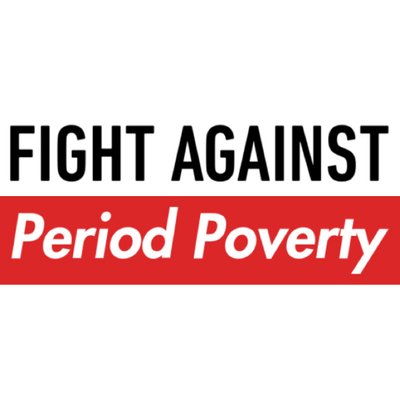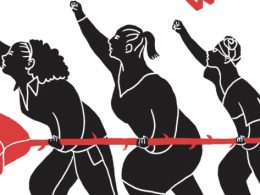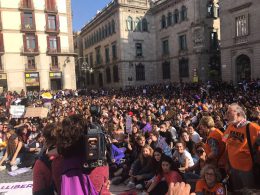By Ingrid Doyle
For a growing number of women, trans and gender non-conforming people, periods are not just a biological annoyance, they are also a crippling financial burden. For many; young people, lone parents, those subjected to homelessness and those living in direct provision, period poverty is a reality. A survey carried out by PLAN International last year, showed that more than half of young girls, women and gender non-conforming aged 12 to 19, struggle to afford sanitary products.
Similarly, a report carried out in Ireland on lone parents, showed that 84% are unable to meet unexpected expenses. This includes sanitary products for themselves and their teenage children. Those in Direct Provision, struggling to feed and clothe themselves and their families on €38.80 a week, surely find it near impossible to keep excess cash to afford sanitary products. Especially considering these products can cost anything between €2 and €6 per pack, with most using more than one pack per month.
Free availability
In September 2018, Dublin City Council announced it will provide free sanitary products in buildings such as community centres, swimming pools and libraries. Last month, a motion was raised in the Seanad, to provide ‘a free range of free, adequate, safe and suitable sanitary products and comprehensive, objective menstrual education information distributed through all public buildings.’ This is no doubt a step in the right direction, but is far from a solution.
To end period poverty, we must end poverty. This motion shows hope, but considering the chronic underfunding of our education, healthcare system, and public services, how will this materialise? A question is when this will this be fully implemented across the board? And what effect will it have on other expenses and underfunding down the line, will it be made a matter of either or with other services? It is also clear, that this needs to go further than proposed. It must reach beyond public buildings, to ensure all people, across the country, have access to these essential items.
The profit system
It must also reach beyond Ireland – to ensure that, across the world people have that same access to these necessities. Finally, considering the current climate crisis, sanitary products must be produced on a sustainable basis. A move must be made towards free access to, not only free sanitary products for those that need them, but to free sustainable products, to ensure the protection of our planet. It is worth mentioning that these sustainable products are currently taxed at the highest rate of 23%, making them inaccessible to many sections of society. These real solutions, cannot be achieved under this profit driven system. Sanitary products will continue to be commodified by capitalist industries, as luxury items, rather than basic necessities. Companies producing these products must be taken out of private hands, and brought into democratic public ownership, so they can be provided freely to all women, trans and gender non-conforming people. The real solution therefore, is to end poverty, inequality and gendered exploitation, all of which are deeply rooted in the profit-driven capitalism system.












